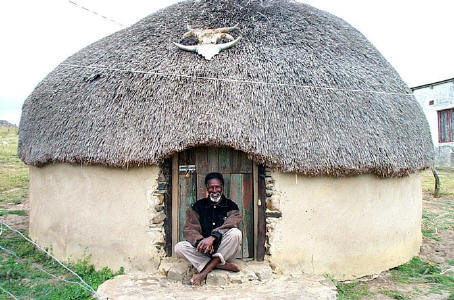Against the backdrop of climate change, a question looms large: Can humans feed all the world’s people? There are already 842 million undernourished people on the planet, and recent research suggests that food supplies are increasingly at risk as temperatures rise. If we do nothing to address agricultural practices and climate change, the picture of human hunger looks dire as our population heads towards ten billion in 2050. David Lobell, an agricultural ecologist at Stanford University who works in the emerging field of crop informatics, wants to brighten this picture. Lobell is working to determine how the world can increase crop yields—that is, get more food without expanding farmland—in the changing environment, while also mitigating long-term damage to the planet. His work examines regions from sub-Saharan Africa to South Asia and staple crops from corn to wheat. To conduct his research, he culls and analyzes existing data on weather patterns, agricultural practices, and resources such as water and soil. In a 2013 study, Lobell determined that corn is more vulnerable to extreme heat and drought than previously thought—a finding that has major implications for helping corn farmers optimize their output.
Related Articles
Caring for 100,000 animals each year
The way to give each tree an identity
The ambitious mission of the Austrian start-up Beetle for Tech
Know your environment: the Bullfrog Films
a major resource for documentary films
How can we solve the growing water crisis?
Philip Wilson and the EcoFiltro solution
the story of bedZED
High-rise history and vertical living
a short documentary by The New York Times
A small film about positive travel experiences
Too many fish out of the water
protecting the oceans
The shadow cities and a billion squatters
as explained by Robert Neuwirth
World's best ethical destinations
the important study of « Ethical Traveler »
![]()
STAY IN TOUCH
SUBSCRIBE TO OUR NEWSLETTER
AND RECEIVE OUR LATEST STORIES










